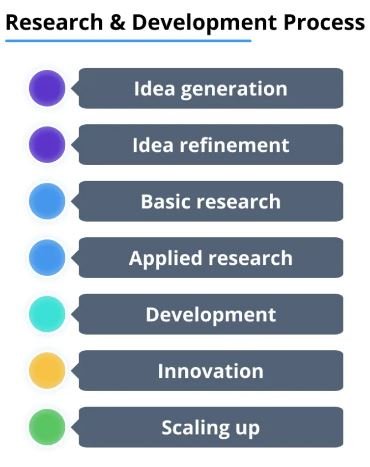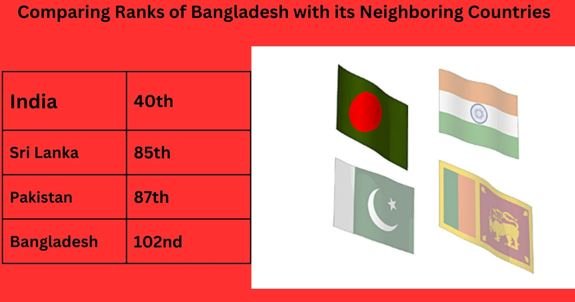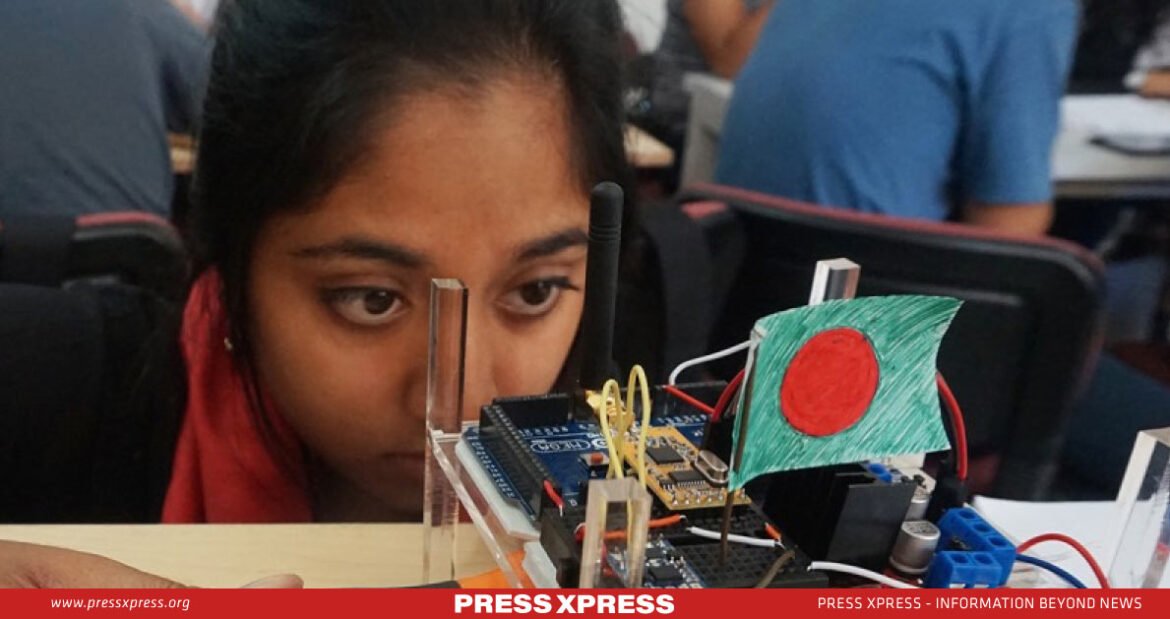Research and development (R&D) are crucial for the economic and technological advancement of a country, ensuring better living standards and sustainable development. Despite its importance, Bangladesh remains significantly behind in this field, particularly in fundamental research
Research is a part and parcel of the economic and technological development of a country to ensure better living standards for the people and sustainable development.
You Can Also Read: Remittance Crosses $2B in May, Hundi Eats up Nearly Same!
For the first time, the Bangladesh Bureau of Statistics (BBS) conducted a survey on this issue. The recently published survey report states that in the fiscal year 2020-21, the expenditure on R&D in the country was only 0.30% of the gross domestic product (GDP), which is less than 105 billion taka. The per capita expenditure in this sector is only 620 taka. There are only 107 researchers per one million people and 187 workers. Conversely, there are only 0.25 researchers per thousand labor force and 0.26 researchers per thousand jobs.

Declining R&D Expenditure Trend
Worrying statistics show that expenditure on R&D as a percentage of GDP has been decreasing every year. For example, in the fiscal year 2018-19, the expenditure in this sector was 0.35% of GDP. It dropped to 0.31% in the next fiscal year (2019-20) and decreased further to 0.30% in 2020-21, indicating a continuous decline rather than improvement.
Trends in R&D Expenditure
- FY 2018-19: 0.35% of GDP
- FY 2019-20: 0.31% of GDP
- FY 2020-21: 0.30% of GDP
Lack of Researchers
The survey, titled ‘Research and Development Survey 2022,’ collected data from 497 public and private institutions. It analyzed information from the fiscal years 2018-19, 2019-20, and 2020-21. The survey revealed that there are only 18,025 researchers in the country, with only 10.82% of them being women. The number of technologists is only 3,052, with 11.34% being women.
Impact on Industrial Competitiveness
According to ABM Shamsuddin Ahmed, Managing Director of Hannan Group, R&D helps to understand the industry’s ins and outs, market demand, product and color trends in different countries and seasons. Due to the lack of effective R&D, Bangladesh is lagging in the fiercely competitive global market for innovative products, technology, and strategies that dominate almost every sector. The lack of R&D sometimes leads to overproduction mismatched with global demand, unhealthy price competition, and significant losses.
Neglect of Basic Research
R&D usually falls into three categories: basic, experimental, and applied research. According to the BBS report, the least expenditure is on basic research. In the fiscal year 2020-21, only 9.4154 billion taka was spent on basic research, which is just 8.98% of the total expenditure in this sector. The highest expenditure, 52.7%, was on experimental development, while 37.40% was spent on applied research. The report suggests that institutions prefer investing in new product and process development over basic research.

Sectoral R&D Expenditure
The BBS survey shows that agriculture accounts for the highest expenditure on R&D. In the fiscal year 2020-21, 38.7593 billion taka was spent in the agriculture sector. Other sectors include education (10.38 billion taka), health (9.2762 billion taka), environment (8.47 billion taka), transport, telecommunications, and infrastructure (7.37 billion taka), and industry (slightly more than 3.31 billion taka).
Survey Objectives and Researcher Education Levels
The survey aimed to prepare various indicators related to R&D and assess the national innovation position. It also aimed to identify the dynamics of the national innovation system and assist in coordinating between the public and private sectors. According to the survey, among the 18,025 researchers in the country, 8,387 have a master’s degree, 5,840 have a bachelor’s degree, 1,283 have less than a bachelor’s degree, and only 2,514 have a PhD or higher degree. However, according to BBS statistics, there are 51,704 PhD holders in the country, meaning almost 95% of PhD holders are not involved in research

Low Global Innovation Ranking
Comparatively, Bangladesh is among the lower-ranking countries in the world in research and innovation, even within the Asia region. In the 2022 Global Innovation Index, neighboring India ranked 40th, Sri Lanka 85th, and Pakistan 87th, while Bangladesh ranked 102nd. Unfortunately, despite allocating adequate funds for research and development in the budget, implementation has not been commensurate
Analysts say that to transition from the category of least developed countries (LDC), implement the Perspective Plan (2021-2041), achieve the Sustainable Development Goals (SDGs), and survive in the competitive world, the allocation for research at both the governmental and private levels must be significantly increased. In this era of technology and competition, there is no alternative to quality research and innovation.
Recommendations for Promoting Research
To foster a robust research culture, the government should prioritize and promote research across educational, manufacturing, and healthcare-related organizations. Key actions include:
- Increasing the allocation of funds for research and ensuring accessibility for all researchers, including students.
- Enhancing laboratory facilities in both general and engineering universities.
- Improving access to reliable data from public and private sectors.
- Encouraging medical colleges to engage in research activities, leveraging available donor funds.
By addressing these issues, Bangladesh can enhance its research capabilities, drive innovation, and ensure sustainable economic and technological development.


